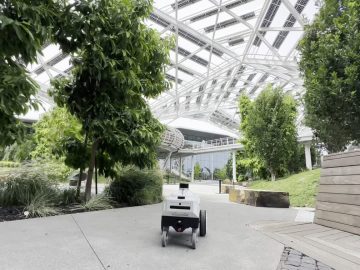SALT LAKE CITY — About half of Americans are considered rent burdened or paying over 30% of their paychecks on rent.
Those numbers stay about the same for Utahns, who have seen a pocket-pinching 36% increase in rent prices since 2020.
Now, it’s being discovered that artificial intelligence could play a part.
The Department of Justice is accusing RealPage, a real estate software company, of inflating rent nationwide through encouraging artificial price hikes.
The popular tech company offers property management services tools for their business, including data analytics for strategizing purposes like making price decisions.
“You’re seeing these algorithms drive prices in all sorts of different directions,” said Nate Blouin, a Utah state senator and affordable housing advocate.
RealPage’s pricing algorithm suggests rent prices to landlords based on aggregate data of other competitors in the market.
An FTC-backed bill was introduced in the U.S. Senate in January to ban price collusion on rental software, claiming the company and another software company have contributed to the inflation of rental pricing across major U.S. markets.
Now, RealPage is being accused by the DOJ and the attorneys general of eight states of being used for price-fixing in a federal lawsuit filed in August.
Despite being used by many rental companies in the state, Utah wasn’t involved with the litigation.
“I wish Utah had signed onto that,” Blouin said.
He says the collusion over price hikes is something that companies must be held accountable for.
“It definitely gives competitive advantages, if they’re bigger companies that can adjust prices and really work on maximizing profit,” Blouin said.
Steve Waldrip, the senior adviser to the governor over housing strategy and innovation, says algorithmic pricing is definitely happening in our Utah rental markets. According to Zillow, rent has increased by 36% in Utah since 2020.
While the market is trickling downward, there isn’t much of an option with rates, alluding to a plausible widespread use of price aggregating software and collusion to adjust rates accordingly.
When asked if fixed rental collusion could be raising prices in Utah, Waldron responded, “It might have an impact on it.”
While algorithms are used for everything, Waldron says the idea that it could be used to collaborate artificial inflation is definitely something of concern to Utah’s market, if found to exist.
“We have to take a really hard look at that and make sure that we’re not allowing bad economic behavior to go on,” Waldrip said.
Both Blouin and Waldrip say this is one issue out of a larger housing affordability concern that legislatures are analyzing for the next session.
“There’s so many different pieces of this to address,” Blouin said, “whether it’s the costs or whether it’s tenants’ rights.”



